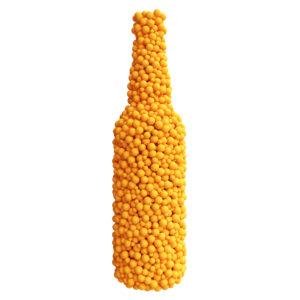 Many people with diabetes will only drink fruit juice to halt a hypo, and now there’s proof that when it comes to sugar content, fruit juice is a heavy hitter. Drinking fruit juice is potentially just as bad for you as drinking sugar-sweetened drinks because of its high sugar content, according two medical researchers from the University of Glasgow.
Many people with diabetes will only drink fruit juice to halt a hypo, and now there’s proof that when it comes to sugar content, fruit juice is a heavy hitter. Drinking fruit juice is potentially just as bad for you as drinking sugar-sweetened drinks because of its high sugar content, according two medical researchers from the University of Glasgow.
Writing in The Lancet Diabetes and Endocrinology journal, Professor Naveed Sattar and Dr Jason Gill from the University of Glasgow’s Institute of Cardiovascular and Medical Sciences have called for better labelling of fruit juice containers to make it explicit to consumers that they should drink no more than 150ml a day. They also recommend a change to the UK Government’s current “five-a-day” guidelines, saying these five fruit and vegetable servings should no longer include a portion of fruit juice. They argue that inclusion of fruit juice as a fruit equivalent is “probably counter-productive” because it “fuels the perception that drinking fruit juice is good for health, and thus need not be subject to the limits that many individuals impose on themselves for consumption of less healthy foods”.
Professor Sattar, Professor of Metabolic Medicine, says, “Fruit juice has a similar energy density and sugar content to other sugary drinks, for example: 250ml of apple juice typically contains 110 kcal and 26g of sugar; and 250ml of cola typically contains 105kcal and 26.5g of sugar. Additionally, by contrast with the evidence for solid fruit intake, for which high consumption is generally associated with reduced or neutral risk of diabetes, current evidence suggests high fruit juice intake is associated with increased risk of diabetes.”
One glass of fruit juice contains substantially more sugar than one piece of fruit. In addition, much of the goodness in fruit – fibre, for example – is not found in fruit juice, or is there in far smaller amounts, explains Professor Sattar. And although fruit juices contain vitamins and minerals, whereas sugar-sweetened drinks do not, Dr Gill argues that the micronutrient content of fruit juices might not be sufficient to offset the adverse metabolic consequences of excessive fruit juice consumption. Says Gill, “The general perception of the public, and of many healthcare professionals, that drinking fruit juice is a positive health behaviour, their consumption might not be substantially different in health terms than drinking other sugary drinks.”
The researchers tested public awareness of the sugar content of fruit juices, smoothies and sugar-sweetened drinks by carrying out an online poll of over 2000 adults who were shown pictures of full containers of different non-alcoholic beverages and were asked to estimate the number of teaspoons of sugar contained in the portion shown. Although the sugar content of all drinks and smoothies shown was similar, the sugar content of fruit juices and smoothies was actually underestimated by 48% on average, whereas the sugar content of carbonated drinks was overestimated by 12%.
Says Dr Gill, “There seems to be a clear misperception that fruit juices and smoothies are low-sugar alternatives to sugar-sweetened beverages.”
It’s always a shame when people are trying to be healthy and choose better food options, just to be undermined by the lack of decent labelling on products. Professor Sattar argues, “In the broader context of public health policy, it is important that debate about sugar-sweetened beverage reduction should include fruit juice. We have known for years about the dangers of excess saturated fat intake. Helping individuals cut not only their excessive fat intake, but also refined sugar intake, could have major health benefits including lessening of obesity rates and incidences of heart attacks. Ultimately, there needs to be a refocus to develop foods which not only limit saturated fat intake but simultaneously limit refined sugar content.”
This news item first appeared in our free-to-receive online magazine. Go to the top of this page to sign up – we just need your email address.



